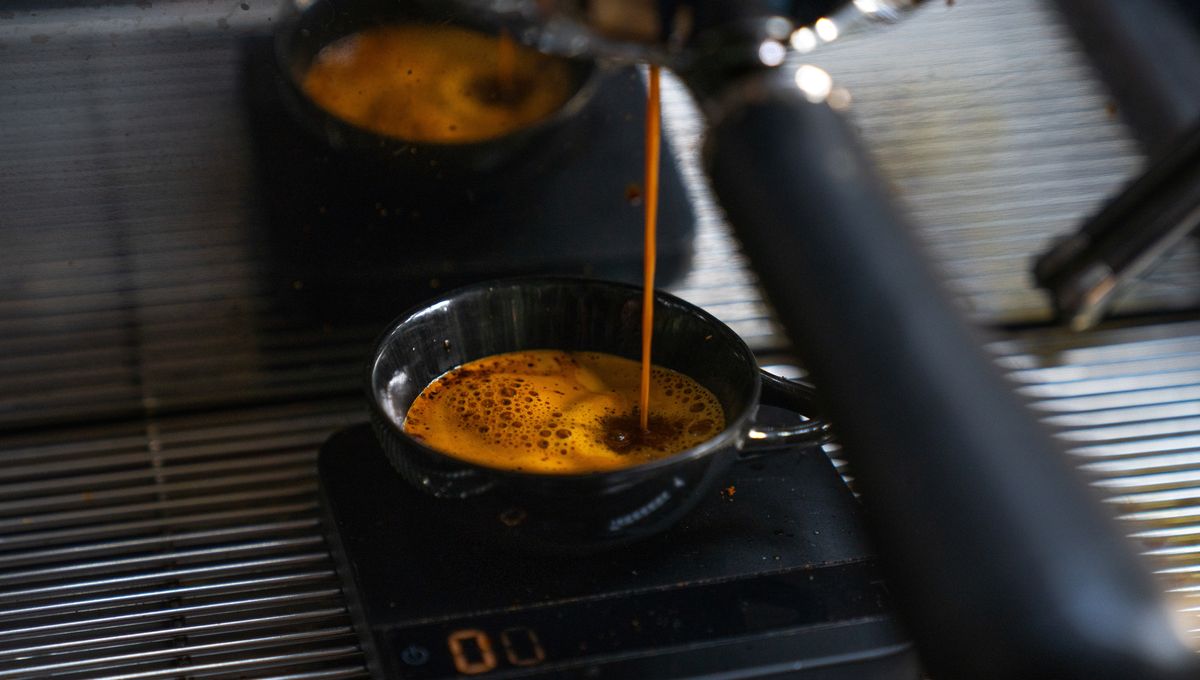
Regular or decaf? French press or Moka pot? Milk, cream, or neither? If you’re a coffee lover, you likely have a preference, and discussions about the best brewing method have sparked many a strong opinion and YouTube video essay. But have no fear, science is here! A new study brought together a coffee expert and (checks notes) a volcanologist to answer an age-old conundrum about coffee grinding.
Coffee is big business, worth 1.5 percent of gross domestic product in the US alone. If there is any way of extracting a higher flavor concentration out of the same raw materials, coffee producers want to know about it.
“Pushing the concentration up by 10%–15% for the same dry coffee mass has huge implications for saving money and improving quality,” explained senior author Christopher Hendon, a computational materials chemist at the University of Oregon, in a statement.
As you grind coffee beans, static electricity is generated in a process called triboelectrification. This is a well-known phenomenon – not least to anyone who has had the unenviable task of cleaning a coffee grinder – but what was less clear was what impact, if any, it has on the final product.
Another place where this same type of static buildup can be found is during a volcanic eruption.
“During eruption, magma breaks up into lots of little particles that then come out of the volcano in this big plume, and during that whole process, those particles are rubbing against each other and charging up to the point of producing lightning,” said volcanologist Joshua Méndez Harper, whom we’re willing to bet did not expect to be first author of a paper largely about coffee.
“In a simplistic way, it’s similar to grinding coffee, where you’re taking these beans and reducing them to fine powder.”
Hendon, Méndez Harper, and the team started their investigation by measuring the static electricity generated by various different kinds of coffee beans – different roasts, caffeine levels, countries of origin, and moisture contents.
Less static electricity was produced from coffee with higher moisture content and when opting for a coarser grind. Lighter roasts – which tend to be less dry – produced more positive charge, but less charge overall than dark roasts.
Given that moisture content appeared to be a significant factor, could adding water be the answer? The team brewed espresso from identical coffee beans, with and without adding a splash of water first – you might have seen baristas spritzing your coffee like this. Adding just a touch of water, up to 20 microliters per gram, not only improved the consistency of each espresso shot, it lengthened the extraction time and produced a stronger brew.
“The central material benefit of adding water during grinding is that you can pack the bed more densely because there’s less clumping,” Hendon explained.
“Espresso is the worst offender of this, but you would also see the benefit in brew formats where you pour water over the coffee or in small percolation systems like a stovetop Bialetti. Where you’re not going to see a benefit during brewing is for methods like the French press, where you submerge the coffee in water.”
So it depends on your approach, but if you favor espresso-based beverages in the morning, the water trick might be worth a try. And watch this space – the team has more investigations in the offing.
“Now that we know what grind settings to use to make reproducible espresso, we can start to try to understand what factors give rise to sensory differences in coffee taste,” said Hendon.
Reflecting on this unusual collaboration, Méndez Harper said, “It’s sort of like the start of a joke – a volcanologist and a coffee expert walk into a bar and then come out with a paper.” But as much as these findings apply to coffee, they could also help resolve similar questions that geophysicists have been wrestling with.
Started with a latte, now we here.
The study is published in the journal Matter.
Source Link: How To Make A Better Espresso – According To Science